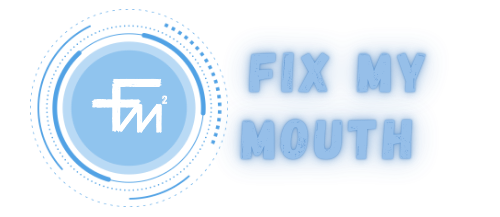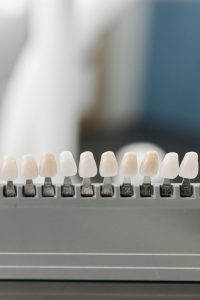Tooth pain can be incredibly debilitating, disrupting daily life and causing significant discomfort. Whether it’s a sharp, sudden pain or a persistent throbbing, finding relief becomes a top priority. Many people search for quick and permanent solutions to this problem, hoping to avoid lengthy treatments and repeated visits to the dentist. In this article, we will explore effective ways to “kill tooth pain nerve in 3 seconds permanently,” offering both immediate relief and long-term solutions to ensure that tooth pain becomes a thing of the past.
Although you can not actually kill a tooth pain nerve, but there are methods by which you can stop or slow down the transmission of pain impulses. If you follow these methods and prescriptions carefully, you will feel immediate relief from tooth pain and might get the feeling that you have killed the tooth pain nerve.
This guide is designed for those you if you are suffering from dental pain and are seeking practical, effective methods to address and eliminate it. By understanding the causes of tooth pain and learning about both temporary and permanent relief options, you can make informed decisions about your oral health and find the relief you need.
Table of Contents
Understanding Tooth Pain
Just like there are different types of headache like migraine, sinus headache, and cluster headache, there are different types of toothache too. In fact it is the explanation of the patient’s perception of toothache which helps the dentist to reach to a conclusion of that patient’s main problem.

Tooth pain can manifest in various forms, each indicating different underlying issues. Common types of tooth pain include:
- Sharp Pain: Often caused by cavities or enamel erosion, sharp pain occurs when the inner layers of the tooth are exposed.
- Dull Ache: Typically associated with infections or gum disease, a dull ache can be persistent and indicate deeper issues within the tooth or gums.
- Throbbing Pain: This type of pain can be a sign of an abscess or severe infection, requiring immediate attention.
The causes of tooth pain are also diverse, just like any other disease. These include the following:
- Cavities: Decay that creates holes in the teeth, exposing nerves.
- Infections: Bacterial infections can lead to abscesses and significant pain.
- Gum Disease: Inflammation of the gums can affect the roots of the teeth.
- Tooth Fractures: Cracks or breaks in the teeth can expose nerves and cause pain.
- Post Extraction: Sometimes, pain may start in a tooth after you get a tooth extraction. It can be due to the foods you eat. Click here to know what to eat after a tooth extraction.
Understanding the type and cause of your tooth pain is crucial for finding the right treatment. While temporary solutions can provide immediate relief, addressing the root cause is essential for long-term health.
Immediate Relief Methods
When tooth pain strikes, immediate relief becomes essential. Here are some methods that can provide quick, albeit temporary, relief from dental pain:
Over-the-Counter Pain Relievers:

Ibuprofen or Acetaminophen: These common pain relievers can help reduce inflammation and alleviate pain. Always follow the dosage instructions on the package.
Dosage instructions for paracetamol can be found here.
Natural Remedies:
- Clove Oil: Known for its analgesic properties, clove oil can be applied directly to the affected tooth using a cotton ball.
- Garlic: Crushing garlic and applying it to the painful area can help due to its natural antibacterial properties.
- Saltwater Rinse: A simple rinse made from warm water and salt can reduce inflammation and disinfect the affected area.
- Peppermint Tea Bags: Cooling used peppermint tea bags and applying them to the affected area can help numb the pain and soothe the gums.
- Vanilla Extract: Applying a small amount of vanilla extract to the affected area with a cotton swab can provide temporary relief due to its alcohol content, which numbs the pain.
Cold Compress:

Application: Applying a cold compress to the outside of the cheek can numb the pain and reduce swelling. Use an ice pack wrapped in a cloth, and apply it for 15-20 minutes at a time. This will lead to a short term relief of your tooth pain.
Hydrogen Peroxide Rinse:
A hydrogen peroxide rinse can help kill bacteria, reduce plaque, and heal bleeding gums. Mix equal parts of 3% hydrogen peroxide with water, swish in your mouth, and then rinse thoroughly with water. Do this after every meal.
Over-the-Counter Topical Anesthetics:
- Gels and Ointments: Products containing benzocaine can be applied directly to the gums and teeth to numb the area and provide quick pain relief.
Elevating Your Head:
Keeping your head elevated when lying down can prevent blood from rushing to the head and intensifying the pain. Use extra pillows to prop up your head while sleeping or lying down.
Essential Oils:
- Tea Tree Oil: Known for its antibacterial properties, tea tree oil can be diluted with a carrier oil and applied to the affected area.
- Eucalyptus Oil: This oil has anti-inflammatory properties and can provide relief when diluted with a carrier oil and applied to the painful tooth.
Acupressure:
- Technique: Applying pressure to specific points on the body can help relieve tooth pain. One such point is the webbing between the thumb and index finger. Pressing this point for a few minutes can reduce pain.
Potassium Nitrate Mouthwash:
Potassium nitrate is known to numb the nerves which carry the pain signal from your teeth to pain. Using a mouthwash which contains this ingredient will essentially block the transmission of nerve impulses. When no pain impulses are transmitted, no pain sensation will be felt by you.
This method is a very effective one for immediate pain relief for those looking to kill tooth pain nerve in 3 seconds at home.
Potassium nitrate is known to numb the nerves which carry the pain signal from your teeth to pain. Using a mouthwash which contains this ingredient will essentially block the transmission of nerve impulses. When no pain impulses are transmitted, no pain sensation will be felt by you.
This method is a very effective one for immediate pain relief for those looking to kill tooth pain nerve in 3 seconds at home.
Some people don’t get required results even after using the mouthwash. The reason for this is that they don’t know how to use it properly. The following video is a guide on how to use a mouthwash properly.
These methods are useful for managing pain until you can seek professional dental care. However, they are not permanent solutions and should not replace a visit to the dentist. Immediate relief methods can help you cope with pain in the short term, but addressing the root cause is essential for long-term dental health.
Permanent Solutions for Tooth Pain
While immediate relief methods are helpful, achieving permanent relief from tooth pain often requires professional dental intervention and is often necessary. Here are some permanent solutions:
Root Canal
A root canal is a common procedure used to remove infected or damaged pulp from inside the tooth, effectively eliminating pain and saving the tooth.
Pulp is the living part of tooth which contains all of the nerves and blood vessels. In the procedure of root canal, the nerves as well as the blood vessels are removed from the pulp. So, you will not feel pain after getting a root canal treatment. This is the way by which you can essentially kill tooth pain nerve.
Tooth Extraction
In cases where the tooth is too damaged to be saved, extraction may be necessary. The tooth which is too much damaged is sometimes referred to as a broken tooth. Broken tooth extraction procedure removes the tooth entirely, so the nerves are then left behind, and when the socket heals, they are covered by bone and gums.
When to See a Dentist:
Even if you have tried so many methods to kill tooth pain but still are not successful, you should consider visiting your dentist as soon as possible. It might be that there is an underlying infection, which is causing this tooth pain, so you should get rid of it as soon as possible.
Visit the dentist if you have:
- persistent pain that does not respond to over-the-counter treatments OR
- signs of infection, such as swelling, fever, or discharge OR
- visible damage to the tooth or gums.
Long-Term Care and Prevention:
If once you get relief from toothache, it does not mean that it will not happen again. Remember that it happened in the first place most probably due to your own neglect towards oral hygiene. Showing a neglect again can again lead to throbbing tooth pain, this time with the possibility of more complications also.
Thus it is important to take measures for the long term prevention of tooth pain. You should follow the follow instructions to avoid tooth pain next time:
- Oral Hygiene Practices: Brushing twice a day, flossing daily, and using mouthwash can prevent cavities and gum disease.
- Regular Dental Check-Ups: Visiting the dentist regularly can help catch problems early before they become severe.
- Healthy Diet: Reducing sugar intake and eating a balanced diet can support overall dental health.
Myths and Misconceptions
There are many myths and misconceptions about tooth pain relief that can lead people astray. Here are some common ones and the truth behind them:
- Myth: Applying aspirin directly to the tooth will relieve pain.
- Fact: Aspirin can cause burns to the gum tissue and should not be used this way. Pain relievers should be swallowed as directed.
- Myth: If the pain goes away, the problem is solved.
- Fact: Pain relief does not necessarily mean the underlying issue is resolved. Dental problems often require professional treatment.
- Myth: Home remedies can permanently fix tooth pain.
- Fact: While home remedies can provide temporary relief, they are not a substitute for professional dental care.
Conclusion
Tooth pain can be a serious issue that requires prompt attention. By understanding the causes of tooth pain and knowing how to address it both immediately and permanently, you can ensure your oral health remains in good condition. Remember to seek professional dental care for persistent pain and maintain good oral hygiene practices to prevent future issues.
If you’re dealing with tooth pain, don’t wait—take action today to “kill tooth pain nerve in 3 seconds permanently” and regain your comfort and peace of mind. Visit your dentist regularly, follow proper oral hygiene practices, and stay informed about the best ways to care for your teeth.





